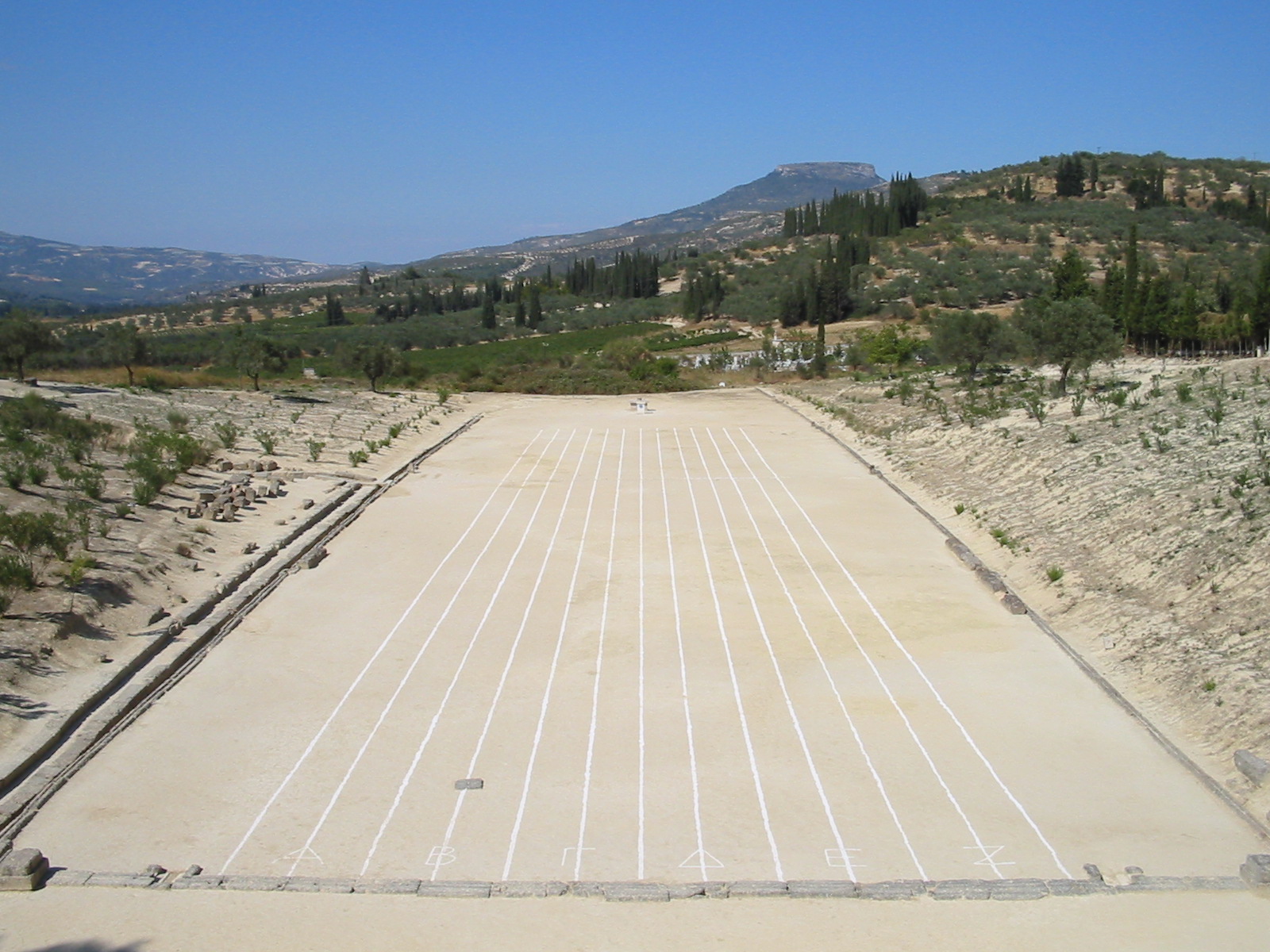Stadium At Nemea on:
[Wikipedia]
[Google]
[Amazon]
 The Stadium at Nemea (
The Stadium at Nemea (
 The Stadium at Nemea (
The Stadium at Nemea (Greek
Greek may refer to:
Greece
Anything of, from, or related to Greece, a country in Southern Europe:
*Greeks, an ethnic group.
*Greek language, a branch of the Indo-European language family.
**Proto-Greek language, the assumed last common ancestor ...
: Νεμέα στάδιον) sits on the ancient site of Nemea
Nemea (; grc, Νεμέα; grc-x-ionic, Νεμέη) is an ancient site in the northeastern part of the Peloponnese, in Greece. Formerly part of the territory of Cleonae in ancient Argolis, it is today situated in the regional unit of Corinthia ...
in the modern day region of Corinthia
Corinthia ( el, Κορινθία ''Korinthía'') is one of the regional units of Greece. It is part of the region of Peloponnese. It is situated around the city of Corinth, in the north-eastern part of the Peloponnese peninsula.
Geography
Cori ...
. Here, ancient Greek athletes participated in the stadion only meters away from the Temple of Zeus. The Nemea Stadium played a big part in the ancient Olympics
The modern Olympic Games or Olympics (french: link=no, Jeux olympiques) are the leading international sporting events featuring summer and winter sports competitions in which thousands of athletes from around the world participate in a var ...
.
Excavation
In 1964, during an excavation by Charles K. Williams II, archaeologists discovered a rectangular stone across the front of the stadium. This is thought to be the starting line. There is minimum wear to the object other than several marks on the top, which David Gilman Romano says are explained by “ he stadium’slater use as a threshold.”Romano, David G. (1977) Hesperia: The Journal of the American School of Classical Studies at Athens, vol. 46 no. 1. p. 29. Also appearing on the block is a single character, anepsilon
Epsilon (, ; uppercase , lowercase or lunate ; el, έψιλον) is the fifth letter of the Greek alphabet, corresponding phonetically to a mid front unrounded vowel or . In the system of Greek numerals it also has the value five. It was der ...
(ɛ). Though the form of the epsilon is not archaic, it is hard to tell whether or not it is part of the original use of the starting line or not.
Athletics
Nemea Stadium played a major role in Greek athletics. The stadion, or running event, was held here. The stadion was named after the building it took place in. The Nemea Stadium is actually a Latin re-write of the word stadion. Between 776 and 724 BC, not only was the stadion the premier event of the Nemean games but it was also the only event. Winners of the stadion race would originally win the entirety of the games. Miller, Stephen G. (2004). Ancient Greek Athletics. New Haven: Yale University Press. p. 31.References
{{reflist Ancient Greek buildings and structures Sports venues in Greece Nemea